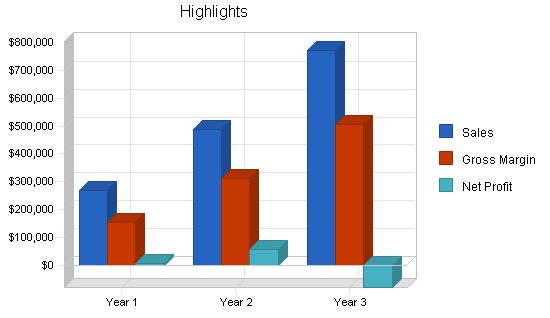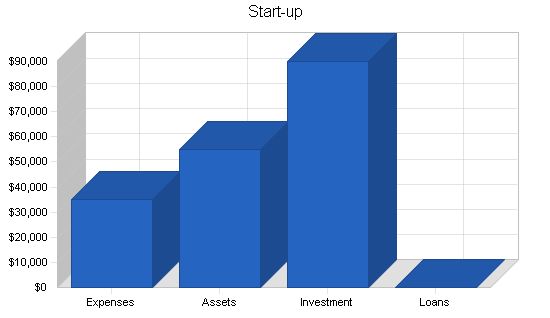Twin Brothers Construction (TBC) aims to be a leading provider of construction and renovation services in the local area. The company’s strategy focuses on continuous improvement, setting goals, measuring results, and providing feedback to drive further growth.
TBC, headquartered locally, has highly experienced and qualified management. The brothers leading the management team each have over 25 years of experience in the construction industry.
Through their experience, TBC’s owners have developed advanced bidding, scheduling, and materials solutions for complex construction projects. The company utilizes versatile and adaptable methods for various building configurations.
Owners, developers, construction managers, general contractors, and sub-contractors can achieve significant savings in labor and material costs by using TBC’s construction methods and systems. Applications include both commercial and residential structures.
The housing industry has been experiencing rapid growth for many years. In 1998, a record of 886,000 new-site single-family homes were sold, representing a 10% increase from the previous year. Although there was a slight decrease in sales from 2003, this presents an excellent opportunity for future industry expansion.
Twin Brothers Construction plans to establish marketing alliances with industry leaders and target residential and commercial builders for new sales. The marketing strategy will focus on securing government contracts at the city, county, state, and federal levels.
To reach its target markets, TBC will utilize a direct sales force, relationship selling, and sub-contractors. These channels are appropriate due to their quick access to established distribution channels and reduced capital requirements.
Financially, TBC expects to break even in the second half of the first year. Despite initial cash outflows for sales promotion, the company anticipates maintaining a healthy cash account. By Year 3, the company aims to achieve approximately $772,000 in sales revenue and reasonable net profits.

Our mission is to be the best partner for customers, suppliers, and employees. We strive for profitable growth, operational excellence, customer satisfaction, and strong brand positioning.
1.2 Objectives:
– Establish up to three construction projects within the first year.
– Have two building renovation projects in progress by the end of the first year.
– Locate and purchase our first rental building by the end of the first year.
– Achieve at least 7% profit by the second year.
1.3 Keys to Success:
– Using updated materials and equipment for quality construction projects.
– Educating customers and providing valuable advice during the construction planning stages.
– Confirming customer’s research about target markets and specific sectors.
– Overseeing project logistics, including transportation and meetings.
– Assigning work to experienced and qualified contractors.
The brothers will invest a total of $90,000 ($55,000 and $35,000) in the start-up. Initial cash requirements are $50,000. Start-up assets total $55,000.
2.1 Start-up Summary:
Our start-up requirements include the creation of a website. Ongoing maintenance expenses for the website are included in our Profit and Loss expenses section.

Start-up Funding Total Funding Required: $90,000
Assets Non-cash Assets from Start-up: $25,000 Cash Requirements from Start-up: $50,000 Additional Cash Raised: $0 Cash Balance on Starting Date: $50,000 Total Assets: $75,000
Liabilities and Capital Liabilities Current Borrowing: $0 Long-term Liabilities: $0 Accounts Payable (Outstanding Bills): $0 Other Current Liabilities (interest-free): $0 Total Liabilities: $0
Capital Planned Investment Owner 1: $55,000 Owner 2: $35,000 Other: $0 Additional Investment Requirement: $0 Total Planned Investment: $90,000 Loss at Start-up (Start-up Expenses): ($35,000) Total Capital: $55,000
Total Capital and Liabilities: $55,000 Total Funding: $90,000
Start-up Requirements Start-up Expenses Legal: $2,000 Stationery etc.: $100 Brochures: $500 Consultants: $2,000 Insurance: $10,000 Rent (Deposit and 1st Month): $3,000 Work Equipment: $6,000 Website Development: $10,000 Other: $1,400 Total Start-up Expenses: $35,000
Start-up Assets Cash Required: $50,000 Other Current Assets: $5,000 Long-term Assets: $0 Total Assets: $55,000
Total Requirements: $90,000
Company Ownership The company ownership will be shared by the Chairman and Chief Executive Officer in the following percentage amounts: Chief Executive Officer = 40% Both owners are veterans in the building industry, each with over 25 years experience.
Products and Services TBC will sell its services to clients in the area of commercial construction and renovation. The company’s staff will design specialized construction drawings that outline the schedule, work sequence, and the materials needed for building and renovation construction projects. Owners, developers, and general contractors will realize substantial savings in labor and material costs by using TBC’s customized performance methods. TBC’s methods will offer complete adaptability at cost-effective prices. The drawings that the company will furnish to the contractor will specify the order of assembly and erection, including the location of the strongbacks and joists, the location and actual loading of the ties, location of accessories, and advise clients of the maximum allowable rate of concrete placement.
A longer-term service will be commercial building rental management. This will include the purchase of commercial building sites or existing buildings that need renovation, coordinating the construction/renovation, then managing the rental of the property. The company will also be looking for existing property owners whose properties need renovation to update and increase its income potential, with TBC eventually taking over the management of these properties on behalf of the owner.
To enter the market with minimum overhead costs, TBC plans to utilize mainly subcontractors and independent experts for its building and renovation projects.
Accident prevention will be the cornerstone of TBC’s safety commitment. The company will strive to eliminate foreseeable hazards which could result in personal injury or illness; at TBC, health and safety will not be compromised.
Market Analysis Summary There were about 792,000 construction companies in the United States in 2002: 237,000 were building construction contractors; 60,000 were heavy and civil engineering construction or highway contractors; and 496,000 were specialty trade contractors. Most of these establishments tend to be small, with the majority employing fewer than 10 workers. About 4 out of 5 workers are employed by small contractors.
Construction offers more opportunities than most other industries for individuals who want to own and run their own business. The 1.6 million self-employed and unpaid family workers in 2002 performed work directly for property owners or acted as contractors on small jobs, such as additions, remodeling, and maintenance projects. The rate of self-employment varies greatly by individual occupation in the construction trades.
The local area is booming at this time, with many development projects running both by public and private sources. Overall business growth over the past seven years has averaged approximately 9.5% and is expected to continue for at least the next several years. This constitutes an attractive market for TBC. The company will be concentrating on office building construction, the fastest growing segment of all the commercial clients requiring our services. The other categories to serve will include building renovation along with a segment called the general category, to serve other potential commercial clients.
One longer-term field of operation for the company will be the selling of building material and components to contractors. By slowly establishing itself as a first-rate material provider, the company expects to broaden and strengthen its stance in the local building industry. Initially, it will focus on purchasing supplies for its own construction and renovation projects, then use those completed projects as marketing examples to showcase the quality of materials used and the customized approach used to design and construct them.
The company plans to develop marketing alliances with industry leaders and pursue new sales of its services to commercial builders. The market strategy is to capitalize on the company’s future alliances by securing city, county, and state government contracts.
TBC also plans to use a direct sales force, relationship selling, and subcontractors to reach its markets. These channels are most appropriate because of time to market, reduced capital requirements, and fast access to established distribution channels.
Market Segmentation The overall Construction Industry was segmented in 2002 as follows (employment in thousands):
Hello!
I’m Andrew Brooks, a seasoned finance consultant from the USA and the mind behind phonenumber247.com.
My career is built on a foundation of helping individuals and businesses thrive financially in an ever-changing economic landscape. At phonenumber247.com, my aim is to demystify the complex world of finance, providing clear, actionable advice that can help you navigate your financial journey with confidence. Whether it’s personal finance management, investment strategies, or understanding the nuances of market dynamics, I’m here to share insights and tools that can propel you towards your financial goals.
Welcome to my digital space, where every piece of advice is a step closer to financial clarity and success!
